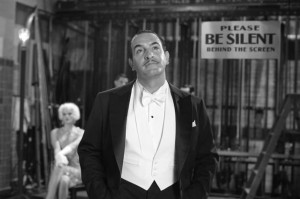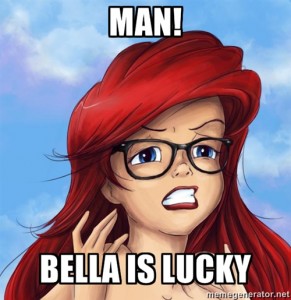Earlier this year, I was at a writing workshop, and someone asked me a fairly innocuous question. They asked me “Are you a writer?”
“Sort of,” I said, “it’s not my main job. It only supplements my income.”
The questioner was kind of surprised. “Wait,” they said, “you make money?”
Well, yes. Not very much of it and not frequently enough, but yes, that does happen sometime. I do not like calling myself a “writer.” For some reason, the word seems loaded and uncomfortable, and I have this weird feeling that if I were to say to people “I’m a writer,” people would instantly think of some Hemingway wannabe staring intently at a keyboard, not actually producing anything. You know, Ewan McGregor’s character in Moulin Rouge. A guy with vague, lofty ambitions who is unable to actually translate them into anything at all, and wants to have written more than he wants to write.
There is also the tendency to think of “writer” as in the same category as “rock star,” “astronaut,” or “ballerina;” dreamy jobs that technically do exist, but that do not abound in any significant numbers.
So, I’ve been looking for lots of Plan Bs. Something else. A “real” job. However, I feel most satisfied when I can sit down, pound out an article, and actually call it real work. While I have looked into grad school, this past year I’ve been most excited by the writing jobs that I’ve gotten. This spring I wrote some news for a local publication called About Face Magazine, I ever-so-briefly worked for Portland Picks for Men before they went under, did regular work for Metromix, an arts and leisure site, blogged for the Daily Journal of Commerce, and wrote a feature and began blogging for the Portland Mercury. The day job, Portland Walking Tours, has also picked me up to work as a researcher and content provider. Not a bad collection of bylines, and I have a few other projects on deck.
I like this. I like this a great deal. If I knew I could make a living at it, I would make a living as a writer and journalist. There are real, actual people who do this, who research and report and write full time. I would like to be one of them. Given the poor economy, the state of the newspaper industry, and the general non-scarcity of information, though, I still don’t know if this is wholly and completely possible. I really, really want it to be, though. A local newspaper has now interviewed me twice about being a full-time reporter, and, despite knowing that any newspaper in the country could keel over dead and bankrupt at any moment, I’m ready to say yes if the offer me the job.
2011 has made me all the more want to discard backup plans, and just dive into trying to be a full time wordsmith. Even as I type this, there’s an uncashed freelancing check sitting on the table next to me, and that small amount of professional success only makes me fantasize more about pursuing my dream job. I want to be able to say “I’m a writer” without any kind of reservations, asterisks, or caveats, but I’ll only do that when it is, in fact, my full-time job.
It’s not impossible. Not probable, certainly, but being a professional would not violate the laws of reality. Let’s see what happens in 2012.



